UK Tory Govt want their choice for INTERPOL boss AN ONGOING media investigation into why Police Scotland stalled the release of the registers of interests of current & recently retired senior Police Officers – has heard claims the force was told to refuse or delay the release of information – to assist the Conservative UK Government’s ‘post-Brexit INTERPOL strategy’ efforts “to plant their choice at the head of INTERPOL” – the Global policing organisation .
Journalists began investigating claims the Tories wanted to place a Scottish Policing figure at the heart of INTERPOL last year, after material was handed to the media on the extent of lobbying by the Scottish & UK Governments to bring the INTERPOL 2024 conference to Glasgow, in November 2024 – with the Tory UK Government able to announce their choice of Boss to influence and lead the Global Law Enforcement organisation.
Material released under Freedom of Information legislation by the Scottish Government confirmed some aspects of information already handed to journalists – claims which were backed up in the content of Freedom of Information disclosures and content in a letter written by Emma Gibbons, Head of International Law Enforcement Cooperation Unit at the UK Home Office.
Emma Gibbons wrote: “I am writing to you as the Senior Responsible Officer (SRO) for delivery of the UK-hosted INTERPOL General Assembly (GA) 2024, which will take place in Glasgow in the first week of November next year. As SRO, I lead the Home Office delivery team and hold overall responsibility for the event, including the use of the budget. I am supported by the Home Office INTERPOL team as the central co-ordinating delivery team, who oversee the governance detailed below and manage the day to day preparations for this event, working hand in glove with the NCA NCB.”
Ms Gibbons continued: “This is a genuinely exciting event, marking the culmination of the Government’s 5 year, post Brexit INTERPOL strategy. It will see the election of a new leadership team to the organisation in addition, we hope, to the election of a UK national as the new Secretary General.”
“Hosting the event gives the UK a headline role in a major international law enforcement diplomatic event and secures the UK’s place as a world-leader in law enforcement. This is key to the UK’s intention to remain at the forefront of global law enforcement cooperation. With this in mind, event delivery will require collaboration across all units, departments, and organisations, which is why your contribution is crucial for the event’s overall success”
The Freedom of Information disclosures from the Scottish Government can be viewed or downloaded at these links:
(1: FOI – INTERPOL GA – 202300384398 – FINAL RELEASE (2): FOI – INTERPOL GA – 202300384398 – Email Attachments (3): Scottish Government FOI Response-202300384398
Earlier this week, journalists heard allegations from a whistle-blower who provided credible evidence the beleaguered Scottish Police Service had been told to stall any related data disclosures on senior Police Officers – while the UK Government sought to select a candidate for the INTERPOL Secretary General election later this year.
The claims – by a Policing insider – point to fears within UK policing circles that several current & former senior officers from Police Scotland may be seen internationally as too controversial because of their past records in Policing
A reading of the histories of several but not all of the Scottish Policing candidates currently being considered, or in some cases supported by the Conservative UK Government, reveal some of the following information:
One candidate was directly involved in an illegal spying operation to plant electronic surveillance tools on journalists and others digital devices, and was considered to have been part of a move by corruption unit officers to destroy records of investigations including fake passports, false identities and alleged serious criminality.
A second candidate was alleged to have given false evidence to an independent investigation on operational Policing issues, submitted false evidence to a Scottish Parliament Committee and in relation to their job received secret cash payments for employment related issues to help the officer avoid paying tax.
A third candidate was previously accused of multiple allegations of serious sexual assault.
Additional information provided in relation to Scottish Policing candidates also revealed a history of drunken misconduct, complaints from fellow officers of threatening behaviour, several accusations of assault, and a newly discovered file of complaints and poor professional conduct while in an earlier career.
Speaking to journalists earlier this week, the whistle-blower alleged Police Scotland had been told to stall the release of information in relation to Freedom of Information requests for the Registers of Interests of current and recently retired senior Police Officers.
Journalists also heard how figures from the Scottish and UK Government had become involved in the apparent secrecy around what transpires to be already released material from several years back.
A memo shown to a journalist by the whistle-blower reads to the effect that all effort should be made to delay, or refuse release of the information relating to current and former senior officers at Police Scotland and to refuse to give any response to media enquiries.
The material contained in the Registers of Interest for Senior Police Officers – which Police Scotland have been stalling to release an updated version for several months – was published in an earlier release form by this blog in an earlier article here: POLICE DECLARED: Cops Interests Register reveals controversial Chief Constable retains Law Society of Scotland membership, holds seat on ‘Sentencing Council’ quango – yet details fail to give clear picture of highly paid top cops links, interests
The information contained in the earlier version of the Police Scotland Register of Interests follows:
Public Appointments: Member – Independent Steering Group (Op Kenova), Reviewed Annually – No remuneration.
Member – Scottish Sentencing Council, Reviewed Annually – No remuneration.
No Financial and Business interests No Political activity No related party transactions No conflict of interest
DCC Fiona Taylor:
No Public Appointments
Financial and Business interests – Owns a flat which is let No Political activity No related party transactions No conflict of interest
ACC Bernard Higgins:
Public Appointments: Trustee – Police Care UK (formerly known as Police Dependents Trust), May 2013 – Present – No remuneration.
Board Member – Euro 2020 Local Organising Committee, 2017 – Present – No remuneration
No Financial and Business interests No Political activity No related party transactions No conflict of interest
ACC Angela McLaren:
Public Appointments: Trustee – The Police Treatment Centres, for a period of 3 years – No remuneration. – Companies House shows Appointed on: 01st December 2018.
Trustee – St George’s Police Children Trust, for a period of 3 years – No remuneration. – Companies House shows appointed on 1st December 2018.
No Financial and Business interests No Political activity No related party transactions No conflict of interest
ACC Paul Anderson:
Public Appointments: Chair Racing Committee, Scottish Canoe Association, 2019-2020 – No remuneration.
No Financial and Business interests No Political activity No related party transactions No conflict of interests
Other Executive Officers
DCC Johnny Gwynne (retired 15/03/2019 but in post at the date of your request); DCC Will Kerr; ACC Mark Williams; ACC John Hawkins; ACC Gillian MacDonald; ACC Alan Speirs; ACC Malcolm Graham; ACC Steve Johnson;
No Public Appointments No Financial and Business interests No Political activity No related party transactions No conflict of interest
The above details were released to journalists in 2019.
However, in a short Freedom of Information response dated 21 December 2023 to a FOI request late last year by journalists – Police Scotland refused to provide any substantive information on Senior Officers interests and instead only released the following sentence:
“In response, I can advise that 2 members of Force Executive have registered interest for Property Letting and Shop or other like business between the dates of your request.”
An FOI review request regarding the limited disclosure, and failure to provide any real information on senior Police Officers interests was submitted in December 2023 – to which no response has yet been received even with the Scottish Information Commissioner’s office being notified of delays.
The full text of the Home Office letter on the INTERPOL Glasgow Conference can be viewed below:
I am writing to you as the Senior Responsible Officer (SRO) for delivery of the UK-hosted INTERPOL General Assembly (GA) 2024, which will take place in Glasgow in the first week of November next year. As SRO, I lead the Home Office delivery team and hold overall responsibility for the event, including the use of the budget. I am supported by the Home Office INTERPOL team as the central co-ordinating delivery team, who oversee the governance detailed below and manage the day to day preparations for this event, working hand in glove with the NCA NCB.
This is a genuinely exciting event, marking the culmination of the Government’s 5 year, post Brexit INTERPOL strategy. It will see the election of a new leadership team to the organisation in addition, we hope, to the election of a UK national as the new Secretary General. Hosting the event gives the UK a headline role in a major international law enforcement diplomatic event and secures the UK’s place as a world-leader in law enforcement. This is key to the UK’s intention to remain at the forefront of global law enforcement cooperation. With this in mind, event delivery will require collaboration across all units, departments, and organisations, which is why your contribution is crucial for the event’s overall success.
To ensure there is an effective level of join-up, we have agreed a delivery governance structure. At the top-level lies the GA Senior Group who will meet on an ad-hoc basis this year, moving to a more frequent rhythm of meetings in 2024. This group will maintain grip and confidence for seniors directly responsible for delivering the event, including reporting to Ministers, and managing any high-level risks. This group will also be used as the escalation route for urgent decisions. The Senior Group are all represented at working level in the GA Working Group.
The GA Working Group is the primary forum to manage working level delivery of the General Assembly; it tracks progress against key delivery milestones from now until the event in 2024. Attendees should be empowered to make decisions on behalf of their organisation/department and should be considered as responsible for driving forward relevant areas of event delivery as agreed by the group.
Ten subgroups feed into the GA Working Group (see Annex). They are there to support the Working Group in informed decision-making. The members of the subgroups are the subject matter experts; your expertise is crucial in supporting the delivery of this event. I therefore want to thank you for taking part as a key member of the Borders and Immigration subgroup and ask that you ensure that updates and issues for your specific delivery area are raised with the group in a timely fashion. The issues should be reported on and shared appropriately to the wider INTERPOL General Assembly 2024 Working Group, the Home Office planning committee, myself, and any other senior boards as necessary. It is essential that subgroups log notable risks and issues that could impact the delivery of the General Assembly 2024. Increasing risk items must be escalated via the boards outlined in the governance structure detailed above in which the Working Group feeds into. In the case of high-level risks, the ad-hoc Senior Group will be used as an escalation route for urgent decisions and risks.
We will also report progress against delivery into two additional boards to provide confidence at a senior level and a means of ensuring comprehensive communication to those involved: the Home Office led International Criminality Cooperation Board (ICCB) and the joint HO/NCA INTERPOL Strategy Delivery Board (ISDB). Both the ICCB and the ISDB will be used to keep senior stakeholders informed on planning progress in key areas. If you have any boards in your specific areas of delivery who you think need to be kept sighted do let us know.
The ISDB will agree sign-off on some of the more significant, high cost, or strategically important decisions in relation to the General Assembly 2024 planning. The ISDB will also approve any key delivery plans for the General Assembly and will be provided with regular updates from the Working Group. The key decisions made in these ISDB meetings will be fed into the ICCB for information and for comment where necessary.
This is a major event, with all that entails, but with close collaboration and regular communication, underpinning the principle of “no surprises”, I am confident we can deliver a successful UK-hosted General Assembly 2024. If you have any concerns please do contact me or the team.
Journalists will continue to work on the investigation into how the UK Government is campaigning to put a UK Policing figure at the head of Interpol/
If readers, whistle-blowers or insiders have any information with regard to issues involving Police Scotland and Registers of Interests involving Police Officers, or the Conservative UK Government’s determination to get their candidate into the driving seat of INTERPOL – please contact the blog with further details either via the comments section or email us at scottishlawreporters@gmail.com or contact our journalists as per usual arrangements.



















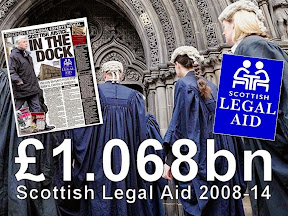



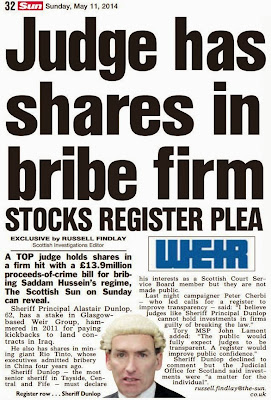











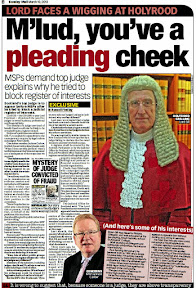
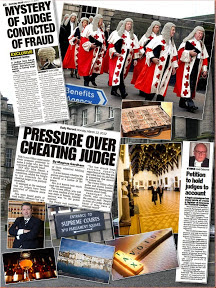
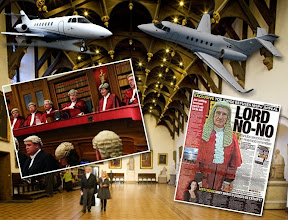


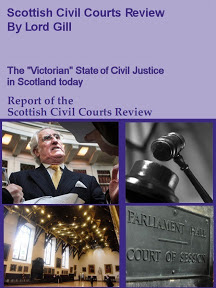
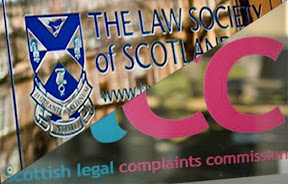



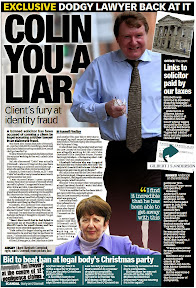
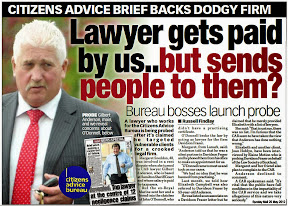



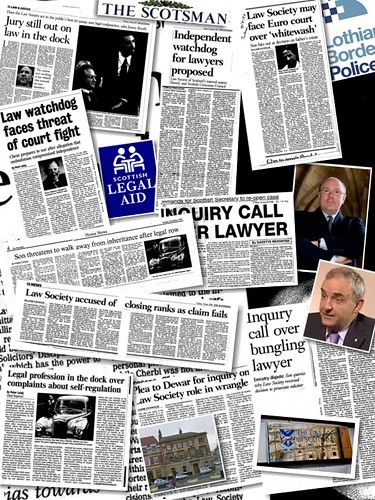




You must be logged in to post a comment.